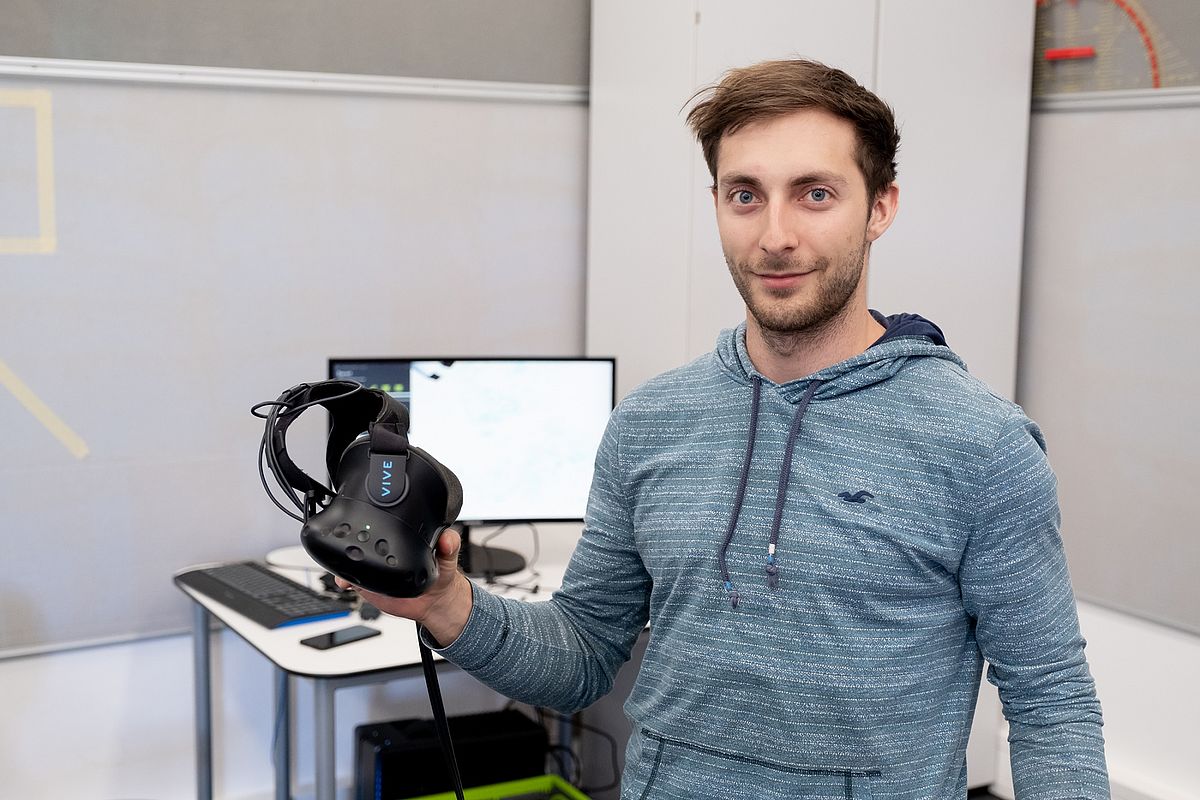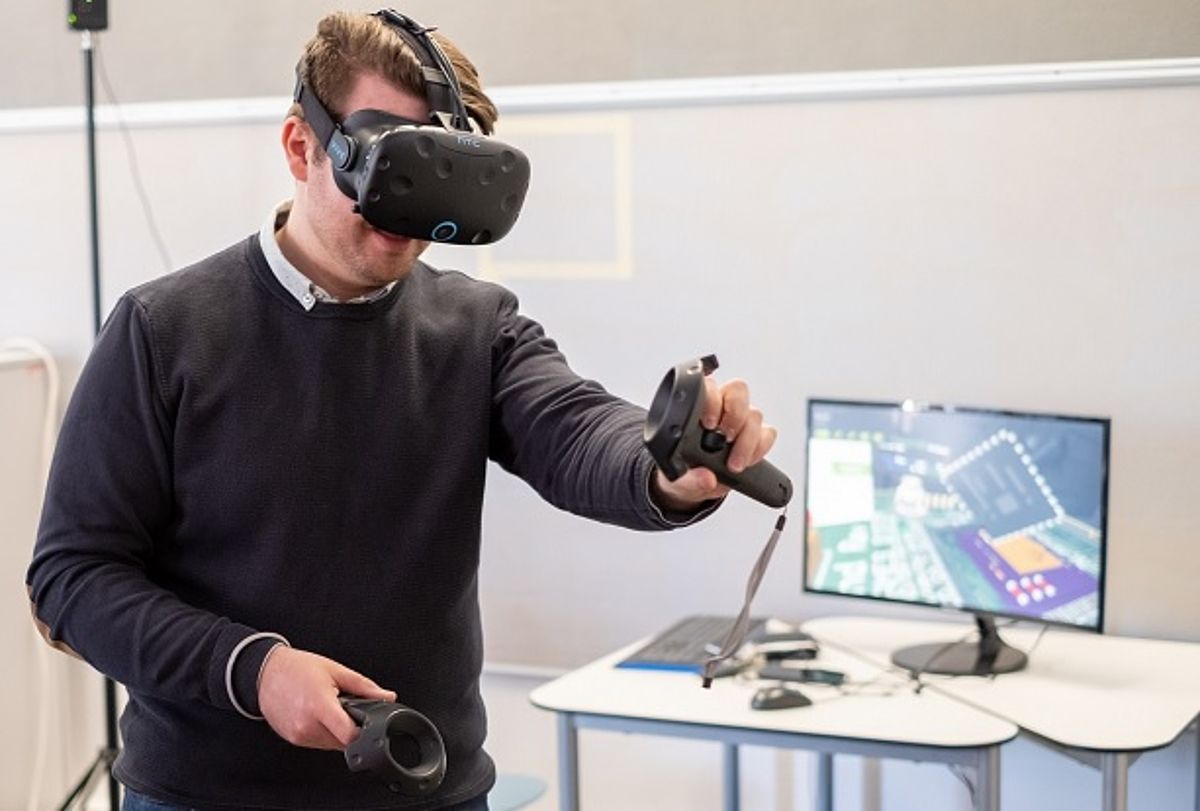Learning Success in Computer Science Education with Virtual Reality
Computer Science Educationalist Andreas Dengel from the University of Passau let students test virtual worlds. The result: All virtual environments contributed to the teenagers’ knowledge. Among other factors, the students’ perceived sense of presence (the feeling of “being-there”) was crucial for the learning success.
“Virtual Reality is not an almighty solution for everything; it is a new medium with the potential to enhance learning processes at the right key points of learning”, Andreas Dengel concludes the findings of his study. Dengel is research associate in the BMBF project SKILL at the University of Passau. For his doctorate, he conducts research about what factors influence learning outcomes in educational virtual environments. Therefore, he conducted a study with 78 students from the Austrian BGS in Schärding where the participants could test virtual worlds for learning about various topics of Computer Science Education. The prototypes for these games covering several Computer Science contents were developed in a seminar at University of Passau.
Virtual Reality is not an almighty solution for everything.
Computer Science Educationalist Andreas Dengel
Some results at a glance:
- The students obtained mean learning success rates between 12 and 29 percent for the particular environments. “They learned better the more they dived into the virtual worlds”, according to Dengel
- It is not the technology that is important, but the resulting sense of presence, the feeling of “being there”. Whether it is a laptop, mobile VR glasses or a professional head-mounted-display like an HTC Vive: “The learning success depends, among other factors, from the willingness and ability of the students to dive into the virtual worlds”, says Dengel. The technology is an important factor for this sense of presence, but other factors like emotion and cognitive abilities influence presence as well.
- The motivation of the students, their cognitive abilities, as well as their emotional state are important for the learning process. For example, the one who is able to take on the virtual learning opportunities with a positive emotional attitude is more likely to immerse him-/herself into the virtual reality and, therefore, experience a higher sense of presence leading to better learning outcomes.
- Computer Science Replugged induces “perceived-as-real” experiences in Computer Science Education. Dengel’s second supervisor, Professor Tim Bell from the University of Canterbury (Christchurch, New Zealand), introduced the concept of “Computer Science Unplugged” over ten years ago: Learning Computer Science by engaging in fun and hands-on activities rather than working on a computer. Dengel pursues the initial approach by presenting Computer Science Replugged as a concept where “experience” game-based educational virtual environments for Computer Science Education.
- Virtual Reality cannot replace the teacher. Using Virtual Realities in the classroom can neither compensate didactical planning nor will it revolutionize everyday lessons as we know them. “It can be expected that the teacher is more important than ever in order to supply the right media at the right point of the learning process”, Dengel adds. Thus, Virtual Reality has the potential to present learning contents as first-hand experience in “perceived-as-real” activities and environments for the students.
The ideas for the virtual worlds that Dengel tested in Schärding derived from seminars of the SKILL subproject Information and Media Literacy at the University of Passau. The prototypes for the software were developed in the seminar “Lernen in Virtual Realities: Konzeption und Gestaltung immersiver Lehr-/Lernrealitäten”. The SKILL project is part of the “Qualitätsoffensive Lehrerbildung”, a joint initiative of the Federal Government and the Länder which aims to improve the quality of teacher training. The programme is funded by the Federal Ministry of Education and Research.
To test the students’ learning outcomes, Dengel formulated hypotheses deriving from a theoretical framework that he adapted together with Professor Jutta Mägdefrau for learning in virtual worlds (Original-Paper „Immersive Learning Explored: Subjective and Objective Factors Influencing Learning Outcomes in Immersive Educational Virtual Environments“). Mägdefrau holds the Chair of Educational Science with a focus on Empirical Research on Teaching and Learning at the University of Passau. The theoretical framework “Educational Framework for Immersive Learning” (EFiL) was rewarded with IEEE’s Best Paper Award at the IEEE International Conference on Teaching, Assessment, and Learning for Engineering (TALE) 2018 in Wollongong, Australia.










